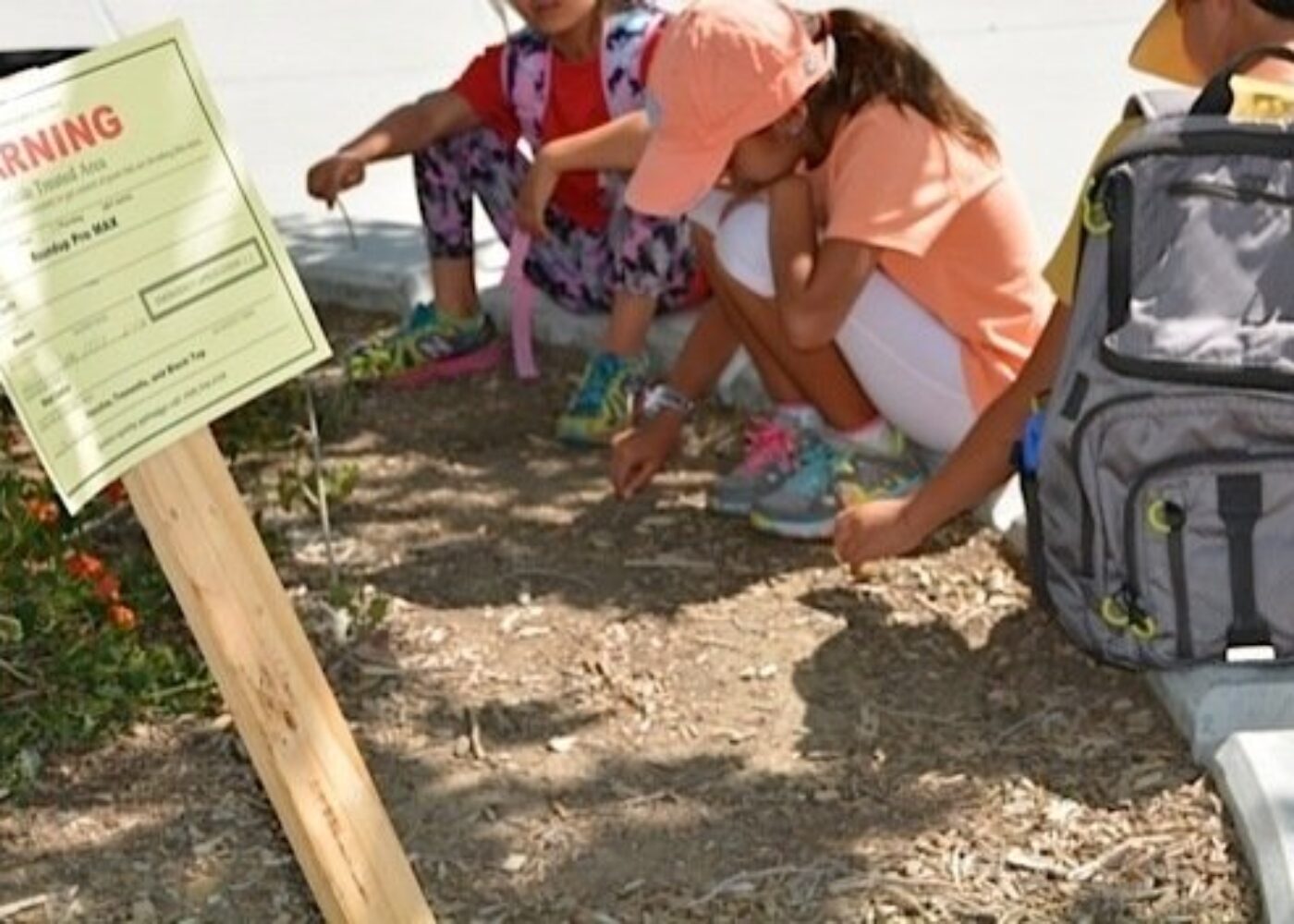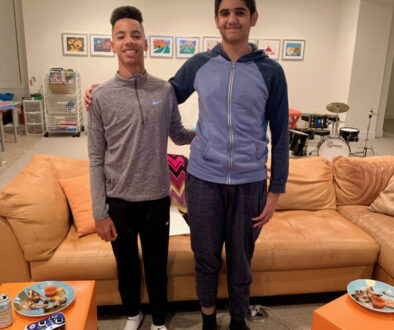How Parents Removed RoundUp and Other Pesticides from Their Town


If you don’t think one person can change the world, you haven’t met the parents from Irvine, California.
As headlines hit last year over the possibility that glyphosate, the key ingredient used in the popular weedkiller, Roundup, had been linked to cancer, parents took action. The World Health Organization issued a report in early 2015 declaring glyphosate a probable human carcinogen. You can learn more from the International Agency for Research on Cancer.
Given that 1 in 2 American men and 1 in 3 American women are expected to get cancer in their lifetime, the City Council of Irvine, California unanimously passed a resolution this year to stop spraying hazardous chemicals such as Roundup (glyphosate) and 2,4-D on public parks, playgrounds and streets—adopting an organic management policy instead. PTA officer Kathleen Hallal coordinated a team called Non Toxic Irvine that secured the ban.
Here is Kathleen’s story of how these amazing parents made this happen:
As parents we are so busy running around between school, sports, and planning for dinner that it’s easy to go about our lives without really paying attention to what is going on in our environment. I was one of those parents. But one day, I noticed a yellow sign in front of my children’s school announcing an application of Roundup Powermax to the campus. Kids were digging with their hands in the dampened dirt of the tree well where that sign was posted while waiting for pickup. I thought, “If those kids are like mine, they will be handed a snack when they get in the car on their way to whatever activity is on their schedule, without washing their hands.” There were dozens of parents and kids walking around, and no one was noticing the sign, or the fact that the kids were playing right beside it. The sign was invisible. This was alarming!
Having learned from farmers, scientists and pediatricians who speak about GMOs that Roundup is substantially more toxic than advertised, I started to wonder how much of it they were applying, and how often, and what else was being sprayed around students. Like many parents of children with health issues who constantly battle to keep their environment and their food clean, I knew this was important. After going out of my way to purchase organic food that was improving their conditions, why had I not noticed all of the spraying going on around them every day? Those yellow notices were everywhere on the different school campuses and around our city. I enquired with our district, and I found out that in actuality quite a bit was being applied, and everyone seemed to think it was perfectly safe. They provided the amounts in ounces, but I learned from a farmer that those ounces created gallons of Roundup. Though employees were required to wear gloves and masks for application (with a shower to follow) while our kids were in class, somehow when the bell rang at 3:00 the moistened soil was seemingly “safe” to touch.
I had several meetings with maintenance, brought in warning letters from scientists and pediatricians addressed to the district, and even brought in a crop expert to meet directly in the offices, all to no avail. At the same time, as PTA Board Chair for Health and Safety for our district, I had invited a farmer and a pediatrician to educate our district’s presidents about the risks of using Roundup and pesticides around our children. After the WHO came out with their statement that Roundup is a probable carcinogen, the presidents agreed to request that the school board stop the use of toxic pesticides in favor of organic and less toxic options. The district finally agreed to stop applying Roundup, which was a great step in the right direction.
Then a really great thing happened: other parents came forward, and a team was formed!
Our board consisted of five parents, each of whom brought individual talents. Ayn Craciun had suffered several miscarriages that she partly attributes to pesticides. She had worked together with Laurie Thompson, a mother of a child with cancer, to stop pesticide use by their homeowner’s association. Kim Konte had been heading up a running club for kids at her boys’ school until she also noticed the yellow signs around the field. We also recruited Bob Johnson, a father from our school who has a background in city management. The board came up with a plan.
We decided about branding and how we would present ourselves to the community in a professional way. We set up a Facebook page, created a website, and started a petition addressed to the school board as well as to the city council. With each signature, a notice was sent to each of the officials, so they would know that there was community support for our request. We contacted a scientist, Bruce Lanphear of Simon Fraser University, who had recently put out a Youtube video entitled “Little Things Matter” based on his study about the cumulative damage of multiple chemicals on children. He provided us with a logo that was similar to his own. Two local professors from UCI, Dean Baker and Bruce Blumberg, also agreed to support our cause and signed on as board advisors. We got press coverage. We contacted Beyond Pesticides to gather studies, and they gave us a grant for expert training for our school district’s crew so they would have solutions other than those taught by pesticide dealers, which is the norm. After we had gathered a few hundred signatures we met with city officials.
At first, staff was reluctant to try alternative methods. The chemical solutions they were using seemed to work well, and they were under the mistaken impression that if a product is listed by the EPA it must be safe. It was not until our school district employees went up to visit the Los Angeles Unified School District, which had been helped by Beyond Pesticides to vastly reduce their chemical use, that they understood it was possible. Our district staff agreed to go even further with the reduction of toxic products in Irvine. This was critical, because we were then able to go to the city to tell them that the school district was moving ahead with a non-toxic program. Support for the city policy change was headed up by Council Member Christina Shea, a cancer survivor. We went into the city council meeting not knowing how the mayor or the other council members might vote. We encouraged many community members to attend the meeting where this issue had been placed on the agenda. Many parents and children spoke in favor of organic practices at the podium. Several families of children with cancer attended, and the 2 minute presentations went on for quite a while. Speakers were overwhelmingly in favor. Then came our moment: the vote. We saw the green lights go on and it was a unanimous YES! Step by step we had convinced the authorities to adopt a toxin-free policy for the sake of our children and our community. Now the signs around our parks and schools say that they are applying organic products.
Robyn O’Brien often says, “Everyone can do one thing.” My wish is for people to come forward and do this in their towns to start a nationwide movement. We need to focus not only on what’s in our cupboard, but also what is going on on the sports fields, for the welfare of our children. There are consultants who can teach your community staff how to change what they are doing in a cost-effective way. Chip Osborne of Osborne Organics trained our district staff. Tom Kelly of Fire Belly Organic Lawn Care is another excellent resource. Beyond Pesticides is has a website that is full of scientific studies to present. The health of pets, children, and community members is of paramount importance, and it is time to begin spreading awareness about what is in that “weed and feed” being used so casually around our communities. For more information and to receive a playbook for your town, please visit Non Toxic Communities on Facebook or visit our website at nontoxiccommunities.com.
NTI is focused on making Irvine, California a complete model of beautiful, non-toxic landscaping, from its city parks, to schools, homeowner associations, retail spaces, apartment communities and more. We also provide resources to people in other cities who want these changes in their towns, and connect people who live close to each other when they contact us.
NTI’s board of directors includes four unpaid but enthusiastic parent volunteers, all of whom live in Irvine: Ayn Craciun, Kim Konte, Bob Johnson and Laurie Thompson. NTI owes much of its success to the support of its academic advisors, UCI professors Dr. Bruce Blumberg and Dr. Dean Baker as well as Dr. Bruce Lamphear of Simon Fraser University in Canada.





